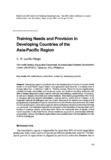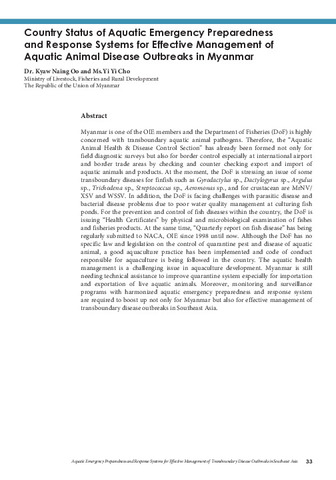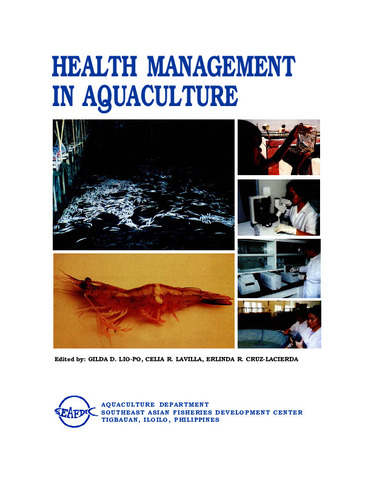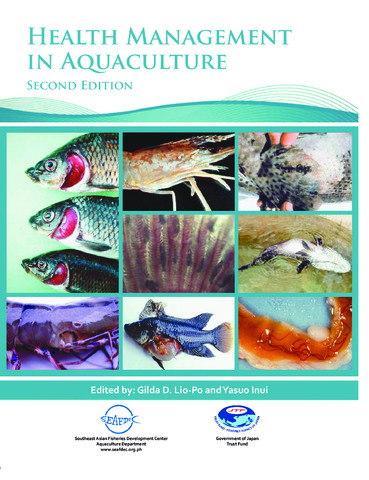Training needs and provision in developing countries of the Asia-Pacific region
Share
Abstract
Training has played a significant role in the development of capacity in aquatic animal health in the Asia-Pacific region where most specialists have fisheries or a background in biology rather than in veterinary medicine. Training courses offered by various organizations, national institutes, universities and the private sector are aimed at providing graduates with skills in disease diagnostics using molecular methods, histopathology, epidemiology, immunology, as well as in disease prevention and control methods. Most training programmes either focus on diseases affecting specific commodities, such as shrimp, marine fish or molluscs, or on diagnostic methods for pathogens such as viruses. Because of the need to train a large pool of geographically dispersed participants, innovative and cost-effective ways of delivery like online and on-site training should be encouraged as well as workshops preceding or following meetings and symposia. One important aspect to be addressed is the translation of training materials to facilitate knowledge transfer to the farm level. Since the inadequate level of aquatic animal health expertise in the Asia-Pacific affects worldwide aquaculture, partnerships between governments, various international organizations and academia should be strengthened in order to fill the training gap.
Suggested Citation
Lavilla-Pitogo, C. R. (2007). Training needs and provision in developing countries of the Asia-Pacific region. In B. Dodet & OIE Scientific & Technical Department (Eds.), The OIE Global Conference on Aquatic Animal Health, Bergen, Norway, 9-12 October 2006 (Developments in Biologicals, Vol. 129, pp. 125–136). Basel: Karger.
Subject
Collections
Related items
Showing items related by title, author, creator and subject.
-
Country status of aquatic emergency preparedness and response systems for effective management of aquatic animal disease outbreaks in Myanmar
Oo, Kyaw Naing; Cho, Yi Yi (Aquaculture Department, Southeast Asian Fisheries Development Center, 2019)Myanmar is one of the OIE members and the Department of Fisheries (DoF) is highly concerned with transboundary aquatic animal pathogens. Therefore, the Aquatic Animal Health & Disease Control Section has already been ... -
Health management in aquaculture
Lio-Po, Gilda D.; Lavilla, Celia R.; Cruz-Lacierda, Erlinda R. (Aquaculture Department, Southeast Asian Fisheries Development Center, 2001)A textbook on diseases of cultured warmwater fish and shrimps in the Philippines. Eleven chapters cover essential information on the basic principles of disease causation, major diseases of cultured fish and crustaceans, ... -
Health management in aquaculture
Lio-Po, Gilda D.; Inui, Yasuo (Aquaculture Department, Southeast Asian Fisheries Development Center, 2010-07)A textbook on diseases of cultured warmwater fish and shrimps in the Philippines. Eleven chapters cover essential information on the basic principles of disease causation, major diseases of cultured fish and crustaceans, ...





